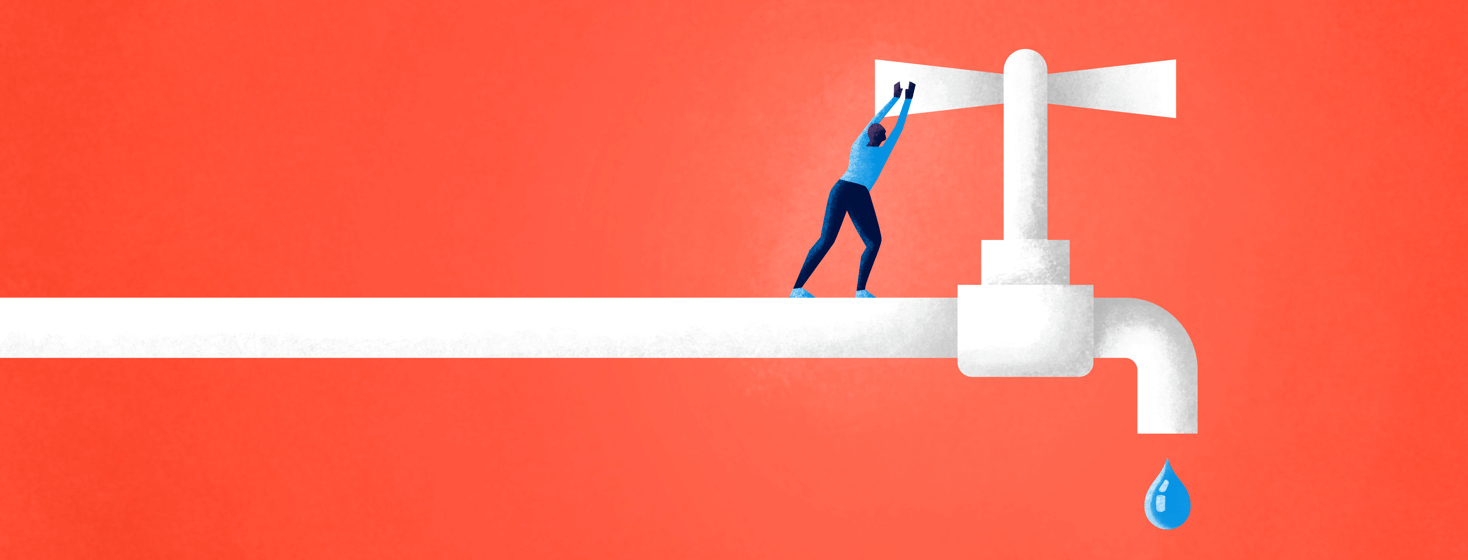Tips for Urinary Control After Prostate Surgery
Urinary problems can happen after prostate surgery. Urinary incontinence is when you cannot control urinating. Most people regain urinary control within 2 years without additional surgery.1
Lack of urinary control can have a major impact on your life. Talk to your doctor if symptoms are frequent or affecting daily life. They can suggest possible lifestyle changes and treatments. These can help reduce the impact on your quality of life.1
What is urinary incontinence?
Urinary incontinence is when you are unable to control urination. The severity of symptoms ranges widely. Some people have random small leaks of urine. Others may have sudden urges that lead to urine coming out without their control.2
Types of urinary incontinence include:2,3
- Stress: urine leakage caused by pressure from coughing, laughing, or exercising
- Urge: sudden, intense urges leading to release of urine
- Overflow: frequent dribbling of urine because bladder does not empty
- Mixed: having more than 1 type
Why does prostate surgery cause urinary problems?
When urine empties into the bladder, valves keep urine inside the body. These valves stay closed until your body tells them to open. During prostate removal surgery (radical prostatectomy), your doctor must remove a valve. The surgery also affects nearby nerves and muscles.1
This can cause you to lose the ability to control urination. More than half of people experience urinary problems after prostate surgery. Stress incontinence is the most common type. Certain things affect your risk of losing urinary control after prostate surgery. These include:3
- Urinary control before surgery
- Age and weight
- Type of surgery (non-nerve-sparing or nerve-sparing)
- Physical aspects of your urethra (the tube that carries urine from your bladder out of your body)
How long do urinary problems last?
Talk to your doctor about what to expect after prostate surgery. It is common to have urine leakage after your catheter is removed. Make sure you have incontinence pads or adult diapers ready.4
It is impossible to predict how long urinary problems will last. It depends on many risk factors. Most people do regain control of urination after prostate surgery. From the time of prostate surgery:3
- 70 percent regain urinary control after 3 months
- 84 percent regain urinary control after 12 months
- 93 percent regain urinary control after 24 months
However, urinary problems may persist. About 5 percent of people must have surgery to treat urinary problems.3
What can I do to improve urinary control?
Most people regain urinary control within 2 years. But symptoms can have a serious impact on quality of life. Fortunately, there are many ways to treat urinary problems.1
Your doctor may first suggest changes in your behavior or lifestyle. These can help mild urinary problems. Examples include:1,4,5
- Maintaining a healthy weight
- Reducing caffeine, alcohol, and acidic foods
- Eating more fiber to prevent constipation
- Avoiding drinking fluids before bed to reduce nighttime urination
- Bladder training by trying to delay urinating when you get an urge
- Urinating again a few minutes after the first time (double voiding)
- Scheduling toilet trips instead of waiting to go
Your doctor may also suggest pelvic floor exercises. These are also called Kegel exercises. You may do them before and after prostate surgery. These exercises can strengthen the muscles around the bladder and urethra. Often, strengthening these muscles helps mild to moderate urinary problems.2
How are severe urinary problems treated?
If your symptoms last a long time or are severe, your doctor may prescribe drugs or suggest surgery. The right option will depend on the type of incontinence you are having. For example, drugs that relax the bladder can treat severe urge incontinence. These include:2,6
- Anticholinergics, such as Ditropan® XL (oxybutynin) and Detrol® (tolterodine)
- Beta3-adrenoceptor agonists, such as Myrbetriq® (mirabegron)
- Alpha blockers, such as Flomax® (tamsulosin) and Uroxatral® (alfuzosin)
Surgical options may treat severe stress incontinence. These surgeries are usually effective. There are 2 main types of surgery for stress incontinence:1,3
- Urethral sling: mesh around part of the urethra to help keep it closed
- Artificial urinary sphincter: a ring around the urethra to keep urine in and a pump you can press to release the urine
There are many other possible procedures, devices, and techniques. Talk to your doctor about the best treatment options for your specific symptoms. Ask them about the risks and benefits of each option.

Join the conversation